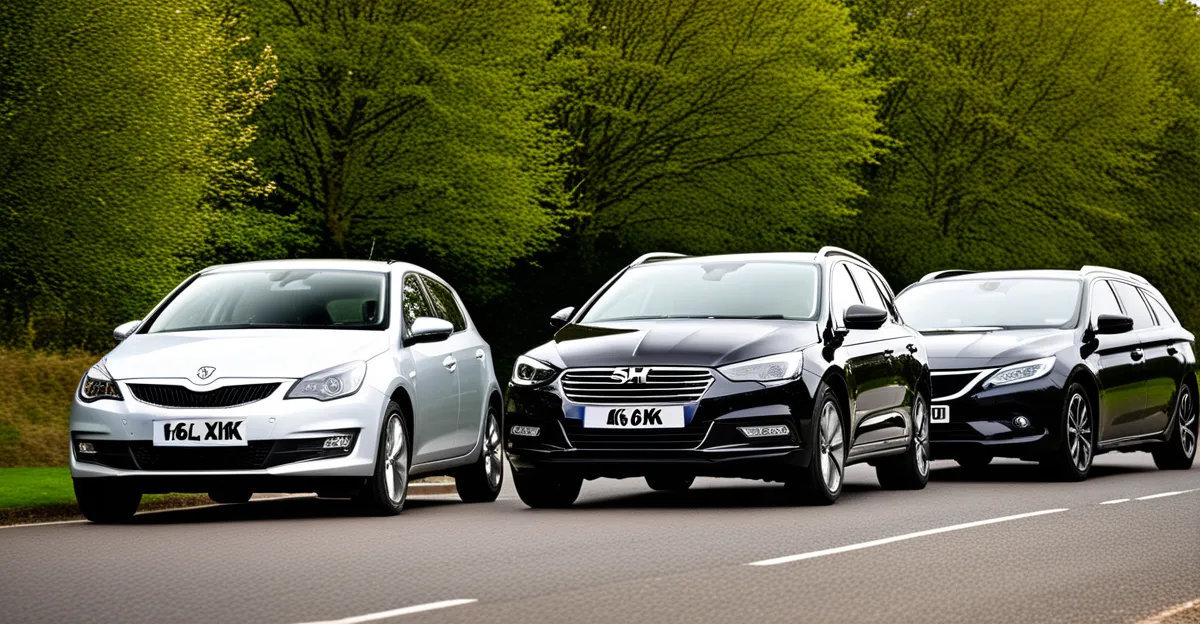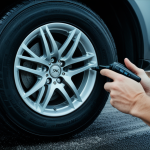Overview of Transitioning from Company Cars to Personal Vehicles
Transitioning from company cars to personal vehicles can be a significant change, often accompanied by a shift in responsibility. Understanding the nuances of this transition is crucial, especially with UK vehicle regulations impacting various facets.
Understanding the Shift in Responsibility
Switching from a company car to a personal vehicle means taking on new responsibilities. You will need to manage all aspects of your vehicle, from choosing the right model to ensuring it meets UK vehicle regulations.
Also read : Unlocking Your Car’s Full Potential: The Comprehensive UK Guide to Fuel Savings with Telematics
Key Factors to Consider Before Making the Switch
Before transitioning, evaluate your personal and professional needs to select an appropriate vehicle. Also, familiarize yourself with the financial implications, including potential upfront costs and ongoing expenses. Furthermore, personal vehicle ownership allows for greater flexibility and customization compared to company schemes.
Importance of Knowing Legal Requirements
In the UK, understanding vehicle regulations is vital. Ensure that your personal vehicle complies with legal standards, and that you obtain necessary documentation and insurance to avoid legal issues. Being aware of and adhering to these requirements can prevent complications during and after the transition.
Also to read : Maximize Your Savings: The Complete Resource for Affordable City Commuting with UK Park and Ride Solutions
Legal Considerations
Transitioning to a personal vehicle requires careful attention to vehicle regulations and legal requirements. Knowing the UK’s specific compliance laws is crucial to avoid potential pitfalls.
Overview of Relevant UK Laws
When acquiring a personal vehicle, it’s essential to understand the legal framework governing vehicle ownership. This includes ensuring your vehicle registration is up-to-date and that the car meets all safety and environmental standards. The UK has strict emissions guidelines that necessitate compliance within urban low-emission zones.
Necessary Documentation for Transferring Vehicle Ownership
A pivotal step in vehicle acquisition is the proper transfer of ownership. This involves obtaining a V5C registration certificate, which serves as proof of vehicle ownership. The buyer and seller must fill out and submit the appropriate sections of the V5C document to the Driver and Vehicle Licensing Agency (DVLA). This ensures that the DVLA records are accurate, and any liabilities tied to the vehicle correctly assigned.
Insurance Requirements and Liability Considerations
In the UK, it is legally required to hold at least third-party insurance, which covers damages or injuries caused to others. Comprehensive insurance provides further protection, covering theft, vandalism, and potential natural disasters. Furthermore, personal vehicle ownership means increased liability considerations; therefore, drivers need to assess their coverage levels to ensure they meet all potential legal and personal obligations.
Failure to adhere to these regulations can result in fines, legal action, and complications with future vehicle sales or transfers. Therefore, understanding these legal aspects is an essential step in smoothly transitioning from a company car to a personal vehicle.
Tax Implications
The shift from a company car to a personal vehicle involves a new approach to understanding tax considerations. Primarily, the company car tax reflects the benefits-in-kind, which can significantly affect an individual’s tax liabilities. Conversely, personal vehicles offer opportunities to manage and possibly optimize your tax burden.
Benefits-in-Kind and Tax Liabilities
A company car is considered a benefit-in-kind, which is taxable. This means you may have been previously subject to taxation based on the car’s value and its carbon emissions. Transitioning to a personal vehicle eliminates this form of taxation, providing potential tax relief. However, personal vehicles come with their own tax implications that need consideration.
Capital Gains and VAT Implications
When you acquire a personal vehicle, there are potential capital gains and VAT implications to consider. If you later sell your vehicle at a profit, this may incur capital gains tax. However, for most personal vehicle sales, this is uncommon due to depreciation. Additionally, VAT is usually included in the price of a new vehicle, which is a cost borne directly by the purchaser rather than the company.
Tax Deductions for Personal Vehicle Expenses
Owning a personal vehicle allows for certain tax deductions related to vehicle expenses. For instance, if you use your car for business purposes, mileage and some maintenance expenses might be deductible. In such cases, maintaining accurate records is crucial to substantiate claims during tax filings. Understanding these deductions can contribute to better financial management of your personal vehicle.
Advantages of Personal Vehicles
Transitioning from company cars to personal vehicles offers several significant benefits. Among these, the opportunity to customize and select a vehicle that aligns closely with personal preferences is a prominent advantage. Unlike company cars, which typically offer limited options, personal vehicle ownership allows individuals to choose specific models, colours, and features that suit their tastes and needs.
Increased Flexibility and Control
Owning a personal vehicle provides enhanced flexibility for personal and professional use. Unlike company cars, where usage may be restricted by corporate policies, personal vehicles afford the owner the freedom to drive whenever and wherever they please. This flexibility is particularly valuable for those with dynamic schedules or non-traditional work environments.
Long-term Financial Benefits
While the transition might initially seem daunting due to the responsibility of managing costs, owning a personal vehicle can lead to long-term financial advantages. Without the obligation to report or justify vehicle-related usage to an employer, owners can better manage and plan their finances. In many cases, driving fewer miles for business purposes can also result in reduced wear and tear, thus prolonging the lifespan and resale value of the vehicle.
Ownership Perks
Personal vehicle ownership brings with it a sense of autonomy and pride. The connection between the owner and the car is personalized, often resulting in better upkeep and maintenance diligence. This attention to care can extend the vehicle’s lifespan and ensure it remains in peak condition, which is particularly advantageous should the owner decide to sell or trade in the vehicle at a later date.
Disadvantages of Personal Vehicles
Transitioning from company cars to personal vehicles, while offering various benefits, also presents several potential drawbacks that need careful consideration. Understanding these challenges can help make informed decisions.
Potential Higher Upfront Costs and Monthly Payments
Switching to a personal vehicle often involves higher upfront costs and ongoing monthly payments. Unlike company cars, which typically include comprehensive financial support, personal vehicle ownership requires individuals to shoulder all costs associated with purchasing or leasing a vehicle. This includes the initial down payment, loan or lease installments, and any additional fees related to the transaction. Evaluating one’s financial situation and readiness to handle these expenses is crucial before making the transition.
Long-term Maintenance and Associated Cost Responsibilities
Owning a personal vehicle also means taking on the responsibility of long-term maintenance and the associated costs. Routine services such as oil changes, brake replacements, and tire rotations become the owner’s duty to manage and finance. Failing to maintain the vehicle properly can lead to more significant repair costs down the line, affecting both performance and resale value. Setting aside a regular budget for these upkeep tasks is recommended to mitigate future financial strain.
Comparison of Perks Lost from Company Car Schemes
Transitioning away from a company car can mean the loss of several benefits tied to corporate schemes. These perks often include covered insurance policies, roadside assistance, and vehicle maintenance services. Personal vehicle owners must independently source and fund these services, which can become costly without the benefit of company-negotiated rates. Evaluating the extent of perks lost and their financial impact is a pivotal aspect of deciding whether transitioning is the right step.
Tips for Choosing a Personal Vehicle
Transitioning to a personal vehicle comes with the freedom and challenge of selecting the right car. Analyzing your personal needs versus budget is crucial. Start by listing what you need from your vehicle—whether it’s fuel efficiency for long commutes or spacious interiors for family travel. Matching these with your financial capabilities will help you find a balance.
When evaluating potential vehicles, consider essential features and performance criteria. Assess the car’s safety features, fuel efficiency, and technology options that align with your lifestyle. Factor in the vehicle’s performance, focusing on aspects like engine size and handling, to ensure it meets your expectations.
Deciding between a new vs. used vehicle also presents various pros and cons. New vehicles offer the latest technology and warranties, often meaning fewer initial repairs. However, they come at a higher upfront cost. Used vehicles might be friendlier to your wallet and avoid rapid depreciation, but they require careful inspection for wear and tear. Understanding these options will guide you in making an informed decision.
Financing Options
Transitioning to personal vehicle ownership involves exploring various vehicle financing options. Choosing the right mode of finance is crucial to managing costs effectively. Let’s delve into some popular financing methods and understand their implications.
Different Financing Methods: Loans, Leasing, and Cash Purchases
When considering financing, you’ll encounter options such as loans, leasing, and cash purchases. Each has distinct advantages and constraints. Loans are common; they entail borrowing money to purchase the vehicle outright, with the commitment to repay along with interest over time. This allows you to own the car, offering flexibility in customization and usage.
Leasing, on the other hand, involves payments over a set term, akin to renting the vehicle. While this might mean lower monthly costs compared to loans, it typically comes with mileage limits and potential wear-and-tear fees. A cash purchase bypasses interest payments entirely; however, it necessitates having substantial funds available upfront, which might not be feasible for everyone.
Understanding Credit Scores and Their Impact on Financing Options
Your credit score is a pivotal factor in determining the financing terms you can access. A higher score often translates to lower interest rates and more favorable loan conditions. Before applying, review your credit report to ensure accuracy and address any discrepancies. This proactive step can enhance your eligibility for competitive financing deals.
Guidance on Securing Favorable Loan Terms and Conditions
Securing favorable loan terms requires preparation and negotiation skills. Start by comparing offers from various financial institutions. Look for competitive interest rates and flexible payment plans that align with your budget. Additionally, some lenders may offer pre-approved loans, giving you more power when negotiating with car dealers. By preparing a solid financial strategy and understanding the intricacies of financing, transitioning to a personal vehicle can be a more manageable and rewarding process.
Maintenance Responsibilities
Transitioning to personal vehicle ownership brings with it the vital task of understanding vehicle maintenance. Regular upkeep is key to ensuring optimal performance and longevity of your vehicle. Essential maintenance tasks include oil changes, brake inspections, tire rotations, and fluid checks. These tasks not only enhance driving safety but also help prevent major mechanical failures.
Monitoring your vehicle’s maintenance history is crucial when considering resale or trade-ins. Meticulously tracking services and repairs can increase your car’s resale value and appeal to potential buyers. A well-documented maintenance log provides evidence of care and can distinguish your vehicle in a competitive market.
Proper budgeting for ongoing upkeep costs is also advisable. Setting aside funds for routine maintenance reduces the risk of financial strain from unexpected repairs. Understanding the average costs associated with services like oil changes or new tires can help you plan effectively. By allocating a regular budget, you can maintain your vehicle’s condition and ensure a smoother ownership experience.
Common Concerns During the Transition
Transitioning from company cars to personal vehicles often raises various transition concerns. It’s common for individuals to worry about losing company benefits, such as inclusive maintenance, insurance coverage, and roadside assistance. User experiences consistently highlight these fears, yet many find solutions that enhance their personal vehicle ownership.
Addressing Common Fears About Losing Company Benefits
Concerns about losing benefits are valid. Company schemes typically provide comprehensive perks that personal vehicles do not automatically afford. However, many services can be obtained independently, often tailored to personal needs, albeit at an additional cost. Researching insurance, maintenance packages, and membership programs can mitigate these fears, allowing for a seamless adaptation to personal vehicle ownership.
Real-Life Case Studies Showcasing Successful Transitions
Examining real-life case studies can demystify the transition process. Take, for example, individuals who’ve successfully adjusted to personal car ownership by strategically choosing vehicle models with low maintenance needs. Others have optimized insurance packages, balancing coverage and costs effectively. These experiences illuminate practical pathways for others transitioning away from company cars.
Providing FAQs That Clarify the Transition Process for Readers
Many questions arise regarding this transition. Here are common FAQs that could assist:
-
What happens to my insurance when switching to a personal car? You must secure a new insurance policy tailored to your vehicle and coverage needs.
-
Do I lose my no-claims bonus when transitioning? Generally, you can transfer your no-claims bonus to a new policy if switching insurers.
-
How can I manage higher costs with a personal vehicle? Budgeting now becomes crucial. Plan for both fixed and variable expenses, like fuel and maintenance.
Addressing these concerns with specificity and solutions can ease the transition, making the switch from company cars to personal vehicles smoother.








